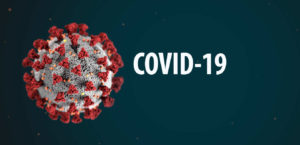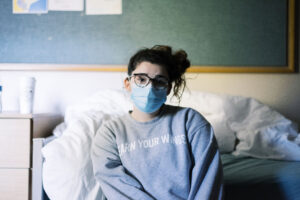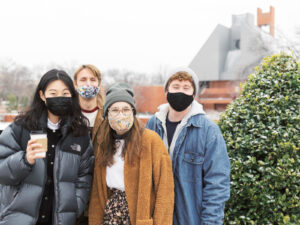INTEGRIS CEO Avila Williams has partnered with Oklahoma Christian University to offer the Moderna COVID-19 vaccine on Oklahoma Christian’s campus. Oklahoma Christian has offered COVID-19 testing since the fall 2020 semester, and continues to offer nasal swab COVID-19 tests, but this is a new step for the university.
As of Feb. 26, 2021, over 1 million vaccines have been distributed to Oklahoman residents, which equals roughly 31,500 vaccines per 100,000 residents. So far, under 12% of Oklahoma citizens are fully vaccinated; however, Oklahoma is currently in the top 10 number of states for percentages of vaccinations given to residents.
CVS and Walgreens have administered the most vaccines so far.
Oklahoma is currently at Phase 2 for vaccinations. Those who are currently eligible for vaccines include: healthcare workers, first responders, residents over 65, adults of any age with, multiple diseases, and preK-12 teachers and support staff.
Melissa Gibson, a junior nursing student, got her first vaccine dose on Feb. 5 at a clinic on the University of Central Oklahoma’s campus. She plans to get her second dose at Oklahoma Christian’s campus. She and her fellow nursing students work in hospitals around high-risk patients, so getting the vaccine was a relief, Gibson said.
“For me, it made the most sense because I’m around nursing people, and I have a higher risk of getting it,” said Gibson. “Personally, I would encourage people to get it, but I’m never going to force anyone to get it. You have to do your own research on it.”
Gibson said the symptoms of the vaccine are similar to tetanus shot with the fatigue of a yellow fever vaccine. Overall, the injection caused minor issues which align with the Health Department’s warnings.
Gibson also said she was well-cared for after taking the vaccine.
“(You) sign up through the CDC so you can list what symptoms you have, and a CDC person will call you to talk to you and suggest you go to the hospital if you have a bad reaction when you get the vaccine,” Gibson said. “They’re monitoring the situation – every day you check in if it’s gotten better or worse. There’s always an opportunity to file vaccine related injuries.”
Gibson said she was grateful for the extra precautions.
“I appreciate that they are listening from people and allowing people an easy way to say what’s going on, what they’re experiencing so they can be contacted and go to the right places to prevent a bad reaction from going worse,” Gibson said.
Gibson also said some nursing students will help with the vaccine clinic on campus starting March 27, but it is not yet confirmed.
Allie Custer, a senior elementary education major, has not gotten the vaccine yet, but she does qualify because of her status as a student teacher. Custer said she found it was hard to find the time to get the vaccine, since most appointments fill up quickly. Having a vaccine clinic on campus meant she did not have to take time away from her students to travel and get vaccinated.
“That would be really handy for me because most of the places are pretty far to get one,” Custer said.
Custer said she thought the vaccine was a good idea to stop the spread of the coronavirus.
“I’m not really concerned about me getting the virus, but I want to create that herd immunity as quickly as possible,” Custer said.
Many Christians, however, are not sure about the vaccine. Some worry it was not tested enough beforehand or it will alter their genes.
Jeff McCormack, the leader of Oklahoma Christian University’s coronavirus readiness task force, tried to assuage those fears.
“They do not affect or interact with our DNA in any way,” McCormack said. “mRNA never enters the nucleus of the cell, which is where our DNA (genetic material) is kept. The cell breaks down and gets rid of the mRNA soon after it is finished using the instructions.”
Those instructions are used to create proteins which mimic COVID-19 cells, which creates an immune response which will help the body fight off real COVID-19 cells.
Although Gibson will soon be vaccinated along with Custer and other students, she stressed wearing masks as a precaution.
“I think masks are good because even if you’re not the immunocompromised, you can protect other people,” Gibson said. “Yes, a virus is smaller than fibers in your mask, but the virus floats on droplets, and masks patch droplets. They do help.”
Wearing a mask and getting vaccinated are precautions to stop getting sick, but Gibson said eating healthy, getting exercise and drinking plenty of water can prepare the body to fight off infection as well.
To sign up for a vaccine appointment, visit the Oklahoma State Department of Health’s vaccination website for more information.















Be First to Comment